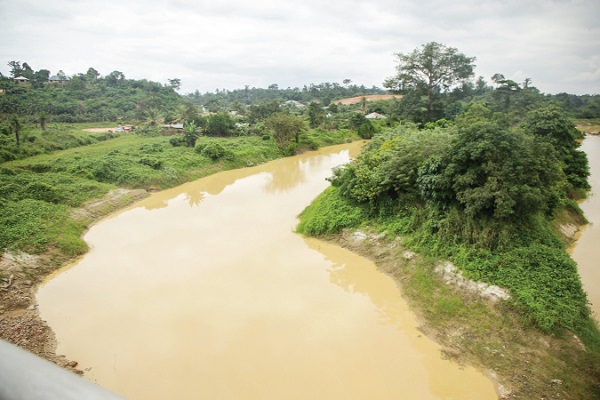
Illegal mining worsens water quality crisis
Despite significant investments to improve water access in Ghana, the country’s water crisis is shifting from access to quality.
Ongoing projects to expand infrastructure are being undermined by illegal mining, or "galamsey," which is polluting key water sources and pushing treatment plants to their limits.
According to the Ministry of Sanitation and Water Resources' 2024 budget report, 87.7 per cent of Ghanaians had access to basic drinking water in 2022, with a target of 91.5 per cent by 2025.
Projects like the $223 million Tamale Water Supply Project, which aims to serve 680,000 people by 2040, and the Keta Water Supply Project, set to benefit over 422,000 people by next year, are examples of the government's efforts to meet rising demand.
However, these gains are being undermined by the widespread contamination of rivers due to illegal mining.
Key rivers like the Pra, Offin, and Volta, essential for urban water supplies, are heavily polluted by chemicals and heavy metals, according to the report.
This has forced the Ghana Water Company Limited (GWCL) to spend more on water treatment, which is becoming increasingly difficult as pollution levels rise.
The report also highlights the loss of 50 per cent of water produced due to leaks, theft, and outdated infrastructure in 2022.
Although it was slightly better than the 49.98 per cent loss in 2020, the government’s target of 45 per cent by 2025 may seem difficult to achieve.
These losses continue to hamper progress, especially in cities like Accra and Kumasi, where water systems are already strained.
According to the report, the Ministry has secured an additional $51.5 million to lay new pipelines in Greater Accra and Kumasi, to extend water services to under served communities and reduce the impact of water losses.
Meanwhile, as illegal mining spreads and pollutes water sources threatening the Ministry’s efforts, the Water Resources Commission has initiated buffer zone programmes to step up monitoring, but the report indicates that these efforts are struggling to keep up with the damage.
Pollution in river basins affected by illegal mining continues to rise faster than restoration and treatment efforts putting the Ministry’s 2025 goals at risk.
With major water supply projects still ongoing and pollution concerns mounting, Ghana's water future looks uncertain as the Ministry of Sanitation and Water Resources tackles illegal mining and water quality alongside expanding access and quality targets.
